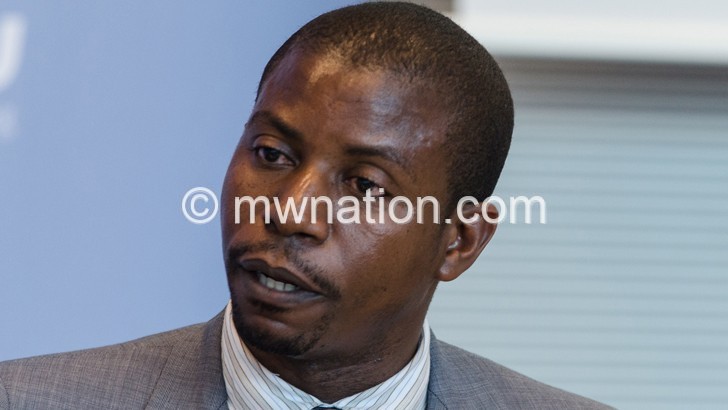Bribery rife in schools—report
A new report by the African Union (AU) shows that at least 57 percent of people who make contact with schools in Malawi pay bribes, ranking as the worst in Africa.
Titled Stolen Futures: The Impact of Corruption on Children in Africa, the report also indicates that at least 45 percent of all Standard Six pupils in Malawi, Mauritius, Namibia, Zambia, Kenya and Zanzibar receive extra lessons at an extra cost, adding to parents’ financial burden.

It reads in part: “With respect to services with critical importance to children, a large proportion of Africans pay bribes to access free social services or hasten access to services. Based on Round 6 and 7 of the Afrobarometer surveys, on average, 14.7 percent of individuals who make contact with schools have paid a bribe.
“The highest proportion of people paying bribes are in Malawi [57 percent], Liberia [45 percent] and Cameroon [32 percent]. There are a number of documented instances where petty corruption can affect outcomes for children, either directly or indirectly. For example, the
acquisition of fake or fraudulent qualifications can impact the learning outcomes of children.”
Beyond these financial costs, the report bemoans that such remedial lessons can compromise teachers’ efforts by creating an incentive to teach certain topics only during private lessons, which disadvantages those pupils who cannot pay.
The study was developed by a group of child-focused organisations (CFAs) based in Addis Ababa, Ethiopia with support and partnership of the AU Advisory Board on Corruption (AU-ABC) and the African Committee of Experts on the Rights and Welfare of the Child (Acerwc).
It also questions the rationale behind informal payments which, it argues, reduce children’s access to quality education.
“For example, informal charges by teachers for teaching, and for additional items such as school meals, books, uniforms or exams can drive poorer students in particular to miss school.
“Informal payments threaten children’s rights and welfare in a number of ways. Whilst many essential services for children, such as primary healthcare and education, are supposed to be provided for free, corrupt practices result in children and their families having to pay for services,” the report reads further.
Meanwhile, Civil Society Education Coalition (Csec) executive director Benedicto Kondowe has said the report’s findings are a true reflection of the situation in Malawi.
In an interview yesterday, Kondowe said Malawians are bribing their way through education.
He said: “That’s the status quo. If you are to get access in public schools, even from primary schools people use connections or bribe to get access. You find that a child has failed Standard Eight exams, but parents or guardians will pay something to schools and that child will be given access.”
Kondowe said a study conducted by Csec also revealed misappropriation of funds that parents contribute to schools.
“Government acknowledged this. A teacher comes up with part-time lessons, gets money from parents, and uses the same facilities provided by government. That’s corruption. What we need to do is to end corruption by, among others, giving stiff punishment to offenders,” he said.
Ministry of Education, Science and Technology Principal Secretary Justin Saidi said he could not comment as he had not seen the report.
But last September, Anti-Corruption Bureau (ACB) director general Reyneck Matemba said all government ministries, departments and agencies (MDAs), especially those that provide services, are rotten with corruption.
He said: “I want to be realistic. As a country, we have a long way to go, we have a problem, and I think the first thing we have to do is to accept that we have a problem. If we continue denying, or remaining in a state of denial, then I think we are not doing a good job.
“Our moral standards have gone down, because you might put in all mechanisms dealing with bureaucratic procedures, cutting red tape, changing the laws, prosecuting people, but we will be chasing shadows if people decide to live a life without ethics. Corruption, fraud, abuse of office, will be the order of the day.”
During the opening the 48th Session of the National Assembly recently, President Peter Mutharika said government is fighting corruption.
He said: “We are fighting corruption and reducing abuse of public resources. It is a continuing fight. We need to expedite court cases on corruption.”
The 2018 Transparency International (TI) Corruption Perception Index (CPI) ranked Malawi on position 120, scoring 32 points, in a report the global movement which measures perceived levels of public sector corruption released yesterday.
Meanwhile, AU Advisory Board on Corruption chairperson Bégoto Miarom has urged governments, policymakers, researchers and child rights campaigners to utilise the study and its policy recommendations in their work.
Among the recommendations are for governments to prioritise addressing corruption within key sectors for children, increase budget transparency and use child rights mechanisms to report on actions taken to end corruption.
States and governments have also been asked to educate children about corruption and empower them to help stop it, share and scale up good practices in fighting corruption, but also increase the evidence base on how corruption impacts children.





